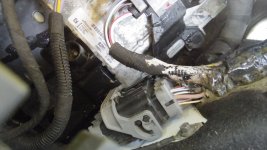gasgas
Full Member
- Posts
- 547
- Likes
- 869
I am hoping that Commercial Fords are better built than Ford cars, also having worked on good cars and Fords since 1970. Did I mention the deliberate design feature of current Transits where rain water is deliberately poured from the windscreen trough directly on to a multi pin electrical connector and on to the engine ECU? A bit of washing machine drain hose soon sorts that problemMany factory built vans i have looked at are a mess with electrics and in my eyes very poor build quality, as for anything built by ford, well after 40 odd years working on cars i wont coment.

